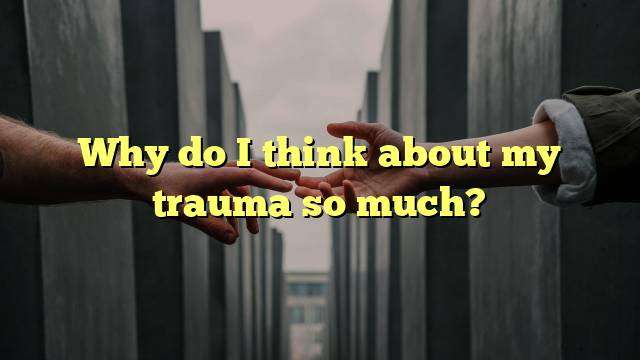Why Do I Think About My Trauma So Much?
Trauma is an experience that many people go through, and it can be incredibly difficult to process. It’s normal to want to understand why something happened to you and why it affected you so much. It’s natural to want to make sense of something that has been difficult to cope with. In this article, we look at why people might find themselves thinking about their trauma and how to deal with it.
What Is Trauma?
Trauma is an emotional response to a distressing event. It can cause feelings of fear, helplessness, shock, and guilt. Trauma can have a lasting impact on a person’s mental health and can manifest itself in a variety of ways, including flashbacks, nightmares, and intense anxiety.
Why Do We Think About Trauma?
Trauma memories are thought to be stored as fragmented pieces throughout the mind, perhaps as a way of buffering the overwhelming emotions associated with what happened. It is believed that repeatedly thinking about the event will help the mind understand what happened and eventually process it.
It is also thought that our brain stores traumatic memories in order to protect us from future harm. By remembering the event, our brain can detect any similar situations and respond accordingly, helping us avoid another traumatic experience.
Thinking about trauma can also be a way of processing it. By understanding why the event happened, we can make sense of our feelings and accept them as a normal part of the healing process. This can help us move forward with our lives and eventually find closure.
How to Cope With Thinking About Trauma
If you find yourself thinking about your trauma, it is important to remember that this is normal and a part of the healing process. However, if your thoughts are causing you distress, there are ways to cope with them.
Recognize Your Triggers
It is important to be aware of what triggers your thoughts about your trauma. This could be reminders of the event, such as people or places, or it could be certain emotions such as fear or anger. Recognizing your triggers can help you become more aware of when your thoughts start to spiral and give you the opportunity to take action.
Develop Coping Strategies
Once you have identified your triggers, it is important to develop coping strategies to help you manage your thoughts. This could include:
- Relaxation techniques: Deep breathing, meditation, and mindfulness can help you stay present and calm.
- Distraction techniques: Doing something to take your mind off the trauma can help you refocus your thoughts.
- Reach out for support: Talking to a friend or a therapist can help you process your feelings and find ways to cope.
- Write it down: Writing down your thoughts can help you make sense of them and express your feelings without judgement.
Seek Professional Help
If you find yourself struggling to cope with your thoughts, it may be a good idea to seek professional help. Therapists can help you understand why you’re thinking about your trauma and provide you with the skills to manage your thoughts. They can also help you process your feelings and find ways to move forward.
Conclusion
Thinking about trauma can be difficult and overwhelming, but it is an important part of the healing process. By recognizing your triggers and developing coping strategies, you can learn to manage your thoughts and start to move forward. If you find yourself struggling to cope, it is important to seek professional help. With the right support, you can find ways to make sense of your trauma and eventually find closure.



